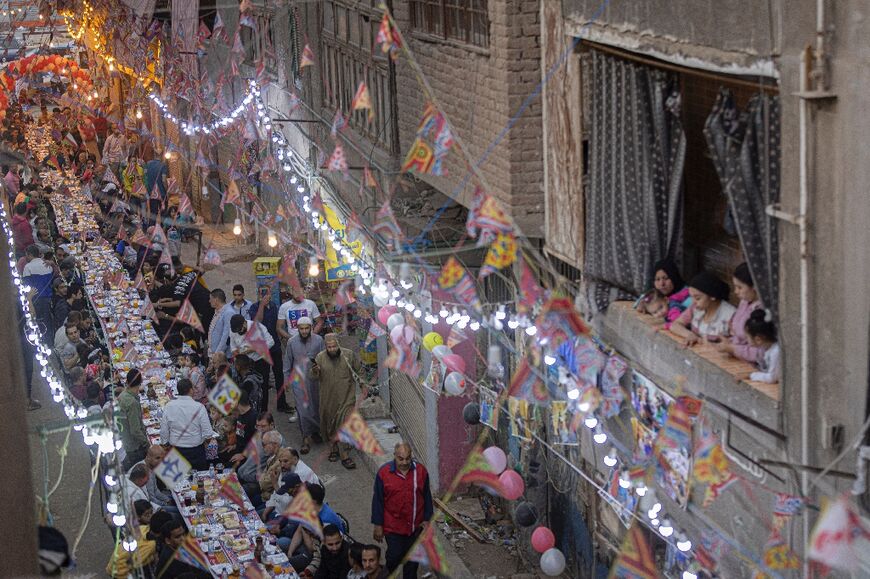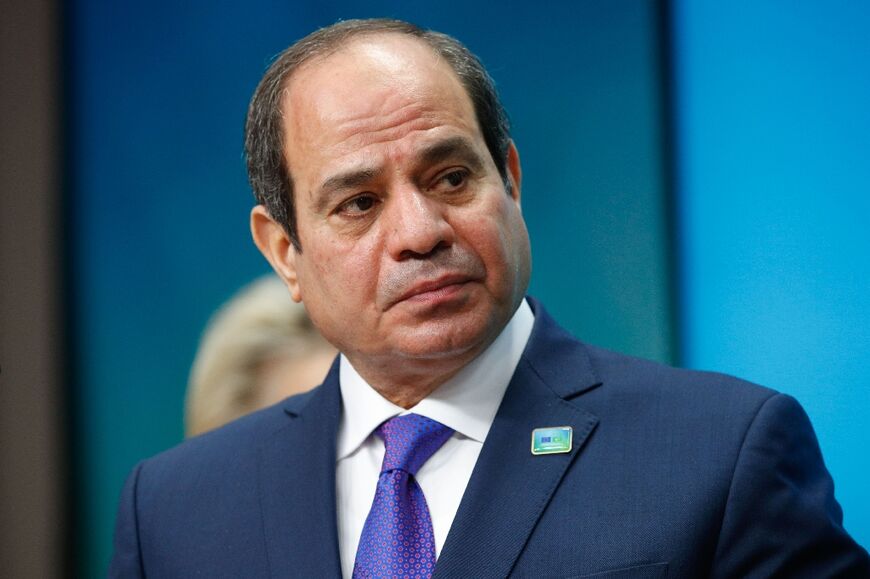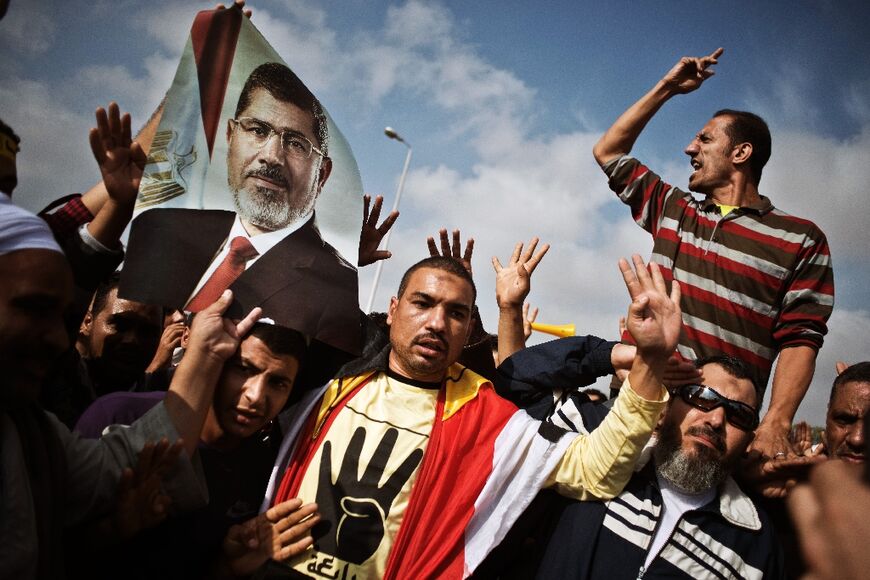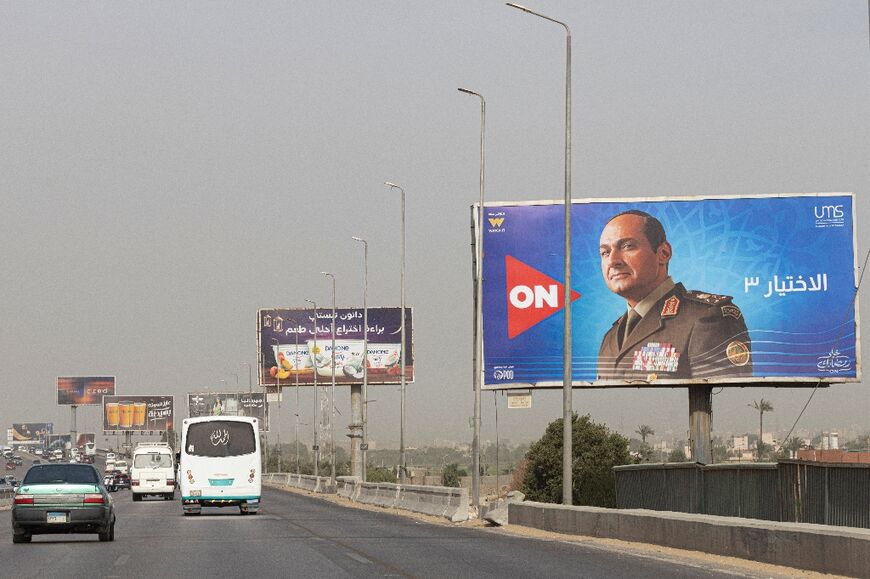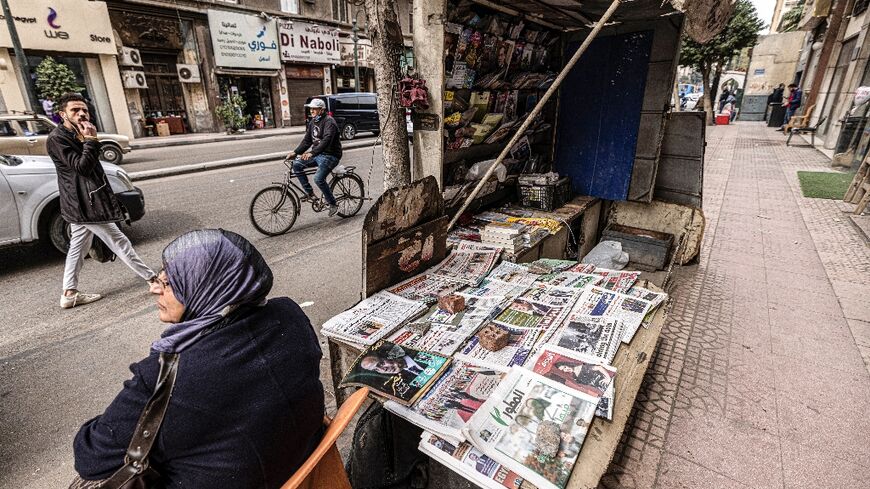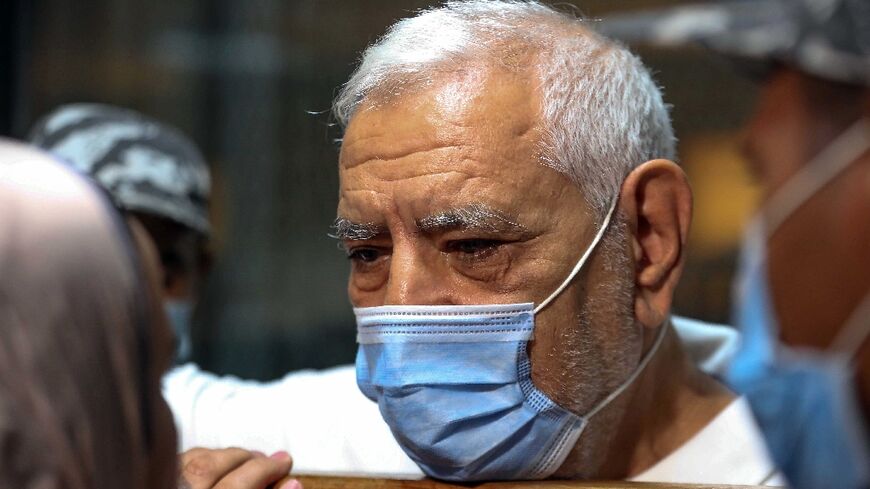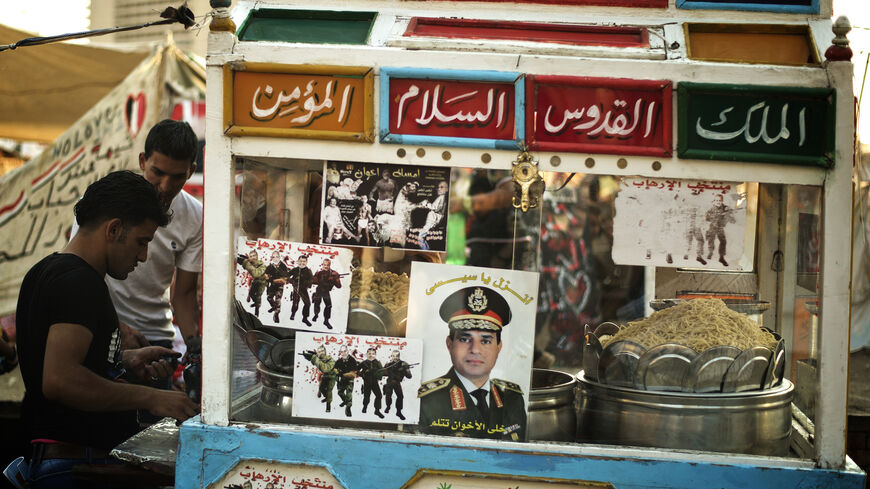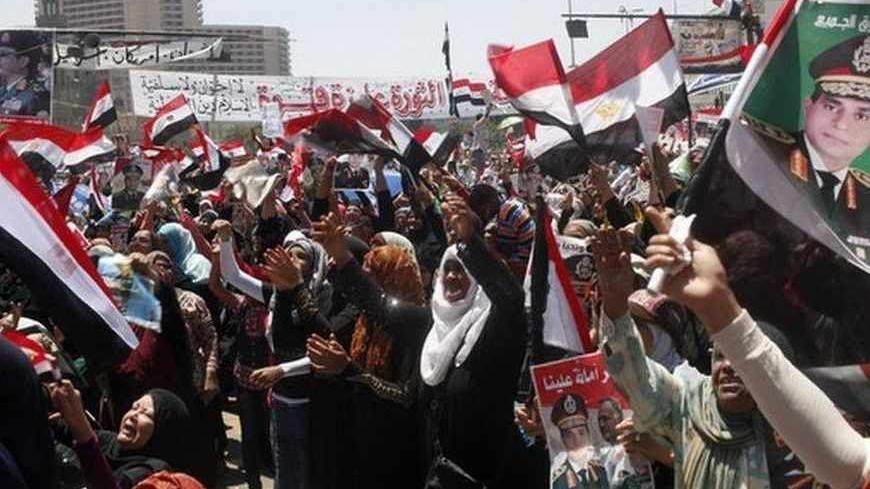In Egypt, the president is a Ramadan TV hero

As Egyptians mark the Muslim fasting month of Ramadan, they are being treated to a blockbuster TV series that celebrates their army marshall turned president, Abdel Fattah al-Sisi.
Fans hail "Al-Ikhtiyar 3" (The Choice 3) for enlightening the masses about Egypt's turbulent recent history. Critics see it as propaganda by a regime that rules with an iron fist.
While the first two seasons paid tribute to soldiers who battle Islamist extremists and to national security agents, the third has the 67-year-old Sisi as its central character.
The 30 episodes -- watched by millions after the traditional iftar sunset meals -- trace the path of the then-defence minister who in 2013 deposed Islamist president Mohamed Morsi on his path to becoming head of state.
Sisi himself told a reception this week that Al-Ikhtiyar "tells exactly what happened at the time".
Sahar Salaheddine, a columnist for state-owned newspaper Al-Goumhuriya, praised the army-sponsored series for "showing the love the people have for their president", and the actors for being "soft power... soldiers".
The lead actor Yasser Galal has by all accounts mastered Sisi's mannerisms, his slightly arched eyebrows, pursed lips and signature whisper.
But, whatever Galal's acting skills, criticising his performance can be dangerous.
The Egyptian Front for Human Rights said that lawyer Nabil Abu Sheikha, after mocking the show on Facebook, was detained on April 11, accused of "disseminating false information" and belonging to a "terrorist" group.
While state prosecutors did not comment on the case, local media reported, citing unnamed "security sources", that Abu Sheikha was being prosecuted for an old case, without mentioning details.
Writer Shady Lewis Botros argued in an editorial that Galal's performance evoked "equal amounts of admiration and ridicule" and that, "like the regime's entire propaganda machine, it becomes a mechanical replication of itself".
- 'Educate new generation' -
The film studios of Cairo, long regarded as the Hollywood of the Arab world, have made on-screen heroes of Egyptian presidents before.
In 1996, "Nasser 56" told the story of Gamal Abdel Nasser nationalising the Suez Canal in a two-and-a-half-hour black and white epic. In 2001, his successor Anwar al-Sadat got his own biopic, "Days of Sadat".
But Al-Ikhtiyar isn't looking to the past, said one of its screenwriters, Baher Dowidar. He argued the series will serve as nothing less than "a history book" 50 years from now.
The goal, argues the local press, is to "educate the new generation" about Egypt, where over half of the 103-million-strong population is under 25.
Those who do not remember the summer of 2013 must be shown "the state's efforts to protect them from terrorism", said one state-owned newspaper.
- 'Unforeseeable turmoil' -
The show is a fictionalised look at the final 96 hours in power of Muslim Brotherhood candidate Morsi, who was elected in 2012 following the Arab Spring protests and who died in prison in 2019.
The army deposed Morsi then violently crushed protests by his supporters in what Human Rights Watch called "one of the world's largest killings of demonstrators in a single day in recent history".
A highlight of the TV show, the trailers promised, was to be a series of leaked videos purportedly exposing Muslim Brotherhood leaders including Morsi.
One clip of apparently real-life footage shows Morsi warning the late field marshal Mohamed Tantawi, who was then the de facto president, of "unforeseeable turmoil" if he did not win the presidential election.
Though the series never sources the footage, it appears to have been shot by the military without the Islamist leaders' knowledge.
Lawyer Sherif Gadalla has said in an official complaint that he believes the video shows that Tantawi used to "secretly record his visitors", and argues that the footage should never have been leaked.
An ardent Sisi supporter, Gadalla targets the show's director and producer, not the government, reasoning that "the Egyptian state apparatus is far too intelligent to be the source of the leaks".
A very different reaction to the show came from another lawyer, Khaled Ali, a prominent figure on the left. He argued that the show, if indeed historically accurate, proves the innocence of his client Abdelmoneim Aboul Fotouh.
The lawyer argued that the series backs the claim of Aboul Fotouh, who ran unsuccessfully against Morsi in the election, that he had no financial ties to the now outlawed Muslim Brotherhood -- and announced plans to submit four episodes of the show as evidence to the court.


